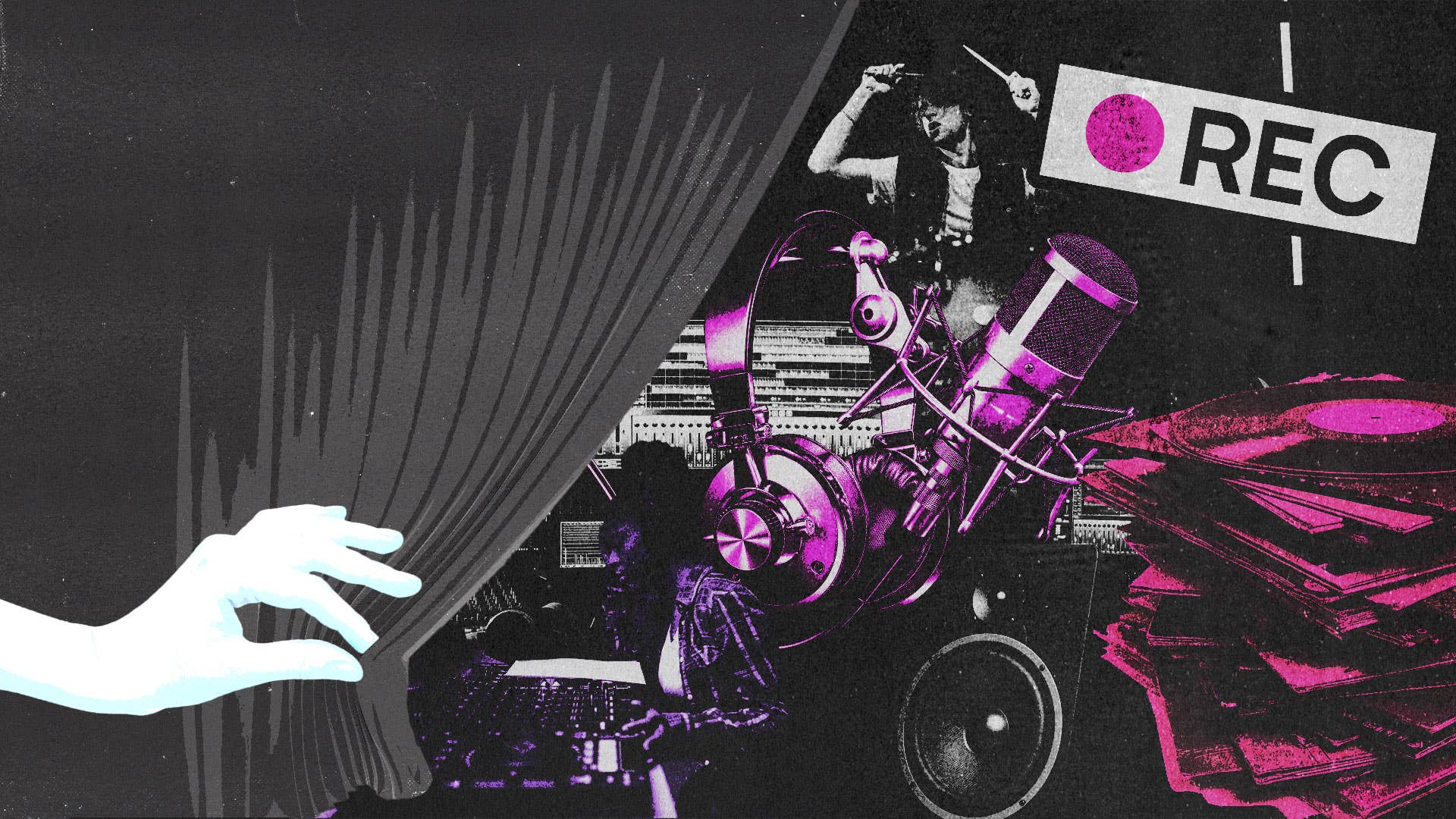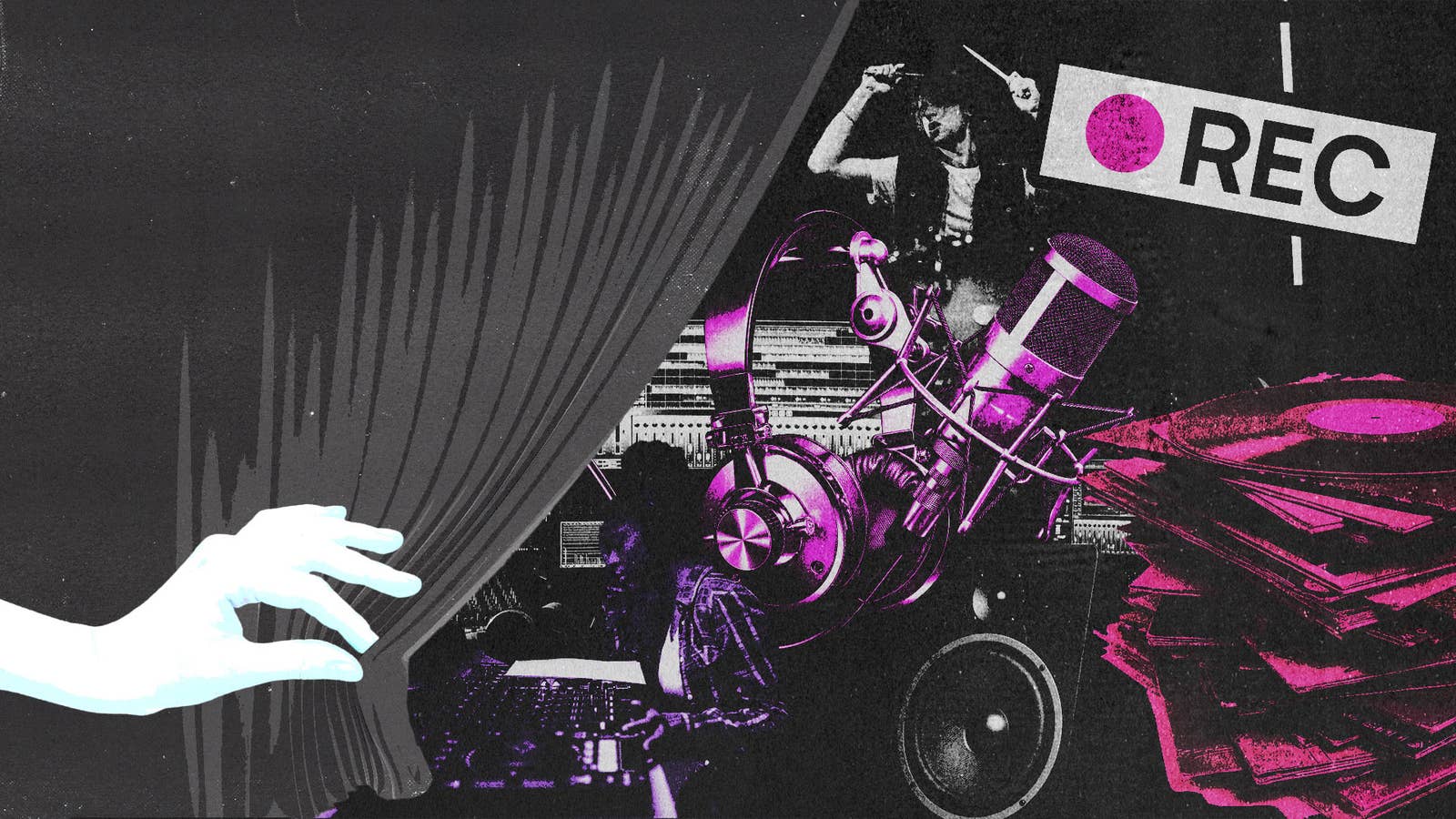
It’s human nature to romanticize what we want and don’t have. This applies to so many aspects of life, but it’s especially true when it comes to jobs and career paths.
After watching Sex and The City, so many young viewers wanted to be professional writers. After watching Dave, they probably wanted to manage an artist or make beats for Trippie Redd. And there’s nothing wrong with that! Pop culture has always shaped our perception of jobs and provided inspiration to aspiring creatives and executives, but it often leaves out some of the less glamorous aspects that no one talks about.
This is not a cynical article written by a tired journalist who wants to deter you from going after your dreams. No, chase your passions—life is too short not to! The goal here is to lay out the reality of these jobs, including the challenges, the less alluring functions of the role, and the often mysterious path to actually landing one of these positions.
We spoke with professionals in some of the music industry’s most coveted roles to pull back the curtain and give an honest and unfiltered look at each position, from major label A&R to music supervisor.
Senior Director of A&R
Who: Dominique Maldonado
Company: Warner Records
What is often misconstrued about the job?
People think that it’s just about having taste and identifying talent and signing that talent. Obviously, that is the engine behind what we do, but the work has a lot more to do with how we’re able to contribute to the development of that artist in terms of the music they’re putting out and when. And then the other part, the part that’s very unsexy, is all the paperwork and keeping up with your deadlines.
What do you wish more people knew about the job?
We really do try to advocate for what the artist wants first. It’s not in our interest to force the artist to do something that’s not natural to them or that they don’t really want to do. We’re here to encourage and we’re here to support. We’re here to put forth the reasoning behind certain steps that we want the artist to take. If [an A&R] is there trying to remake who artists are, even if that pays off in the immediate short-run, it cannot pay off for the artist overall and it’s ultimately not sustainable.
I think there are probably some myths out there about A&Rs and labels in general, but when people think about an A&R just wanting to come in and change everything about the artist—that’s just not the place any of us want to start with. The other point of view, the flip side, is that there are people who think we just don’t do anything.
The best thing about the job?
Learning from the artist and creatives that I work with. I’m surprised every day by some of the ideas that they come up with. I know that if I were 100% in control of everything, these amazing moments of brilliance wouldn’t even happen. I really love the magic that happens where you see artists growing. They share that with you and then that inspires you to pull in more ideas and to grab, for example, a producer that the statement the artist made might have sparked. That give-and-take of having trust between the A&R and artist, that’s a very specific experience.
The most challenging thing about the job?
It can be challenging to—and this is specific to my label—make sure that you’re communicating really effectively with the rest of the building exactly what the overall vision is and how that can support the music. The marketing people are experts at what they do and the branding people are experts at what they do. But if you don’t have some sense of what impression people are supposed to get from the music itself, and you’re not able to communicate that, the artist can get really lost. It can be a challenge to work internally to advocate for the artist in that way.
How to get the job?
It’s hard for me to answer this question sometimes because I didn’t come in through an internship, into a job, into moving up through a company, and then being where I am today to sign artists. I came in through both management and through the concerts that I present, Leaders Of The New Cool. That platform allowed me to do so much forecasting with artists and build so many relationships.
I’d say if you’re kind of coming at it not from that traditional path, you really have to put the work ahead of the role. You have to prove the concept before you’re even paid to do so, to be perfectly honest.
What song or album best describes your journey in the music industry?
“Everything In Its Right Place” by Radiohead
“I know that if I were 100% in control of everything, these amazing moments of brilliance wouldn’t even happen. I really love the magic that happens where you see artists growing.” – Dominique Maldonado
Music Journalist
Who:Brianna Holt
Company: Freelancer/Author
What is often misconstrued about the job?
I think a lot of people from the outside looking in assume that to be a music journalist, you have to be an expert on music. At the end of the day, we are just making our own opinions on the album, the lyrics, and the song and basing that off of our own perspective. I think a lot of people steer away from the music journalism industry because they worry, “What if I get it wrong?” or, “This is not what the artist was trying to portray or convey.” And I think that’s a huge misconception.
Also, a lot of people think it’s just an easy way to meet musicians. Speaking from a woman’s perspective, there are a lot of assumptions that they are mixing business with pleasure with talent. I don’t know why that’s only really assumed when it’s a woman who is interviewing a rapper or a male artist and not the other way around, but I do think that is a common stigma that women experience in this industry.
What do you wish more people knew about the job?
All celebrities have fans and stans, but musicians especially. There’s a lot of pressure to portray the artist in the most positive light while still keeping the ethics in journalism. I get a lot of emails and a lot of DMs from music stans who do not agree with the rating I gave an album or did not like something that I mentioned about an artist in a profile.
The best thing about the job?
The best thing about music journalism is being able to work closely with people that you look up to and who have created some type of change in your life. A lot of people say that music is an outlet for them to relieve stress or to deal with a breakup or to deal with loss. Having such a connection to an artist’s song or album and then be able to interview them or review that music, it just feels like a much more personal connection.
The most challenging thing about the job?
I think there are fewer jobs in music journalism. When I say fewer jobs I mean fewer staff jobs. A lot of people who are covering music are freelance. For whatever reason, the media industry does not prioritize music the same way they do entertainment, or lifestyle, or culture. That is a challenge when it’s something that you want to cover but you have to decide if you can survive off of covering this from a freelance avenue.
How to get the job?
You have to listen to a wide variety of music unless you are working for a publication that is strictly hip-hop or strictly rock. It’s good to have a wide-ranging ear. One thing that has benefited me is that I can write about Prince, I can write about Gunna, I can write about Kate Bush. The best advice is to expand your ear.
What song or album best describes your journey in the music industry?
“Running Up That Hill” by Kate Bush
Music Video Director
Who:Kajal
Company: Freelancer/The Genius Club (Partner)
What is often misconstrued about the job?
A lot of times people think that being a director is this very glamorous thing. I don’t think they realize how much work actually goes into it. It’s not just coming on set, saying action, and being surrounded by all these celebrities all the time. It’s literally spending 80+ hours during the week before the shoot not sleeping, barely eating. I’ve had a really hard time trying to figure out a healthy lifestyle because I’m very committed to my work. I love what I do but being a director is very, very, very rewarding and hard work.
What do you wish more people knew about the job?
I wish people knew that getting to be a director and getting to be a photographer is such a community based thing. You have to have the support of your entire community to be successful in those positions. Every single person that works with you needs to believe and support you for you to even do what you’re doing. Being a director means having an entire community supporting you and seeing your vision.
The best thing about the job?
The best thing about my job is everything! Everyday that I wake up, I’m so blessed because I’m a brown woman, who’s first generation. As a Black woman you understand that we are in spaces that weren’t necessarily made for us. I’m so grateful to be able to do what I do. The more and more I continue to do it, the more and more support I’ve had. The bigger the jobs are getting, the more trust people have in me and the more creative freedom I have. So the thing I like the best about my job is literally everything. Even the frustration that comes with it and even the tears that sometimes come with it.
The most challenging thing about the job?
The most challenging thing about being a director is specifically being a woman of color. I think a lot of times being a BIPOC creative, being a woman of color as a director, I have to prove myself ten times more than the white male director or other white women directors. As women of color, we’re often disregarded, although now it’s changing. It’s definitely changing. We have these powerhouse directors like Ava DuVernay, Melina Matsoukas, and Karena Evans. We have all of these really brilliant women of color who are directing.
But still, I feel like even though I know I’m talented, I had to work 50 times or a million times harder than my white male counterparts, my white female counterparts, or my male counterparts to get here. Sometimes you’re still looked at through a specific lens.
How to get the job?
I would say to someone who wants to be a director or a photographer—you need to be adamant to get the job. When I started out I was very shy. I didn’t have any confidence in myself. I was really quiet. It was hard for me to raise my voice. I was really scared of what people would think. And I think that comes with the territory of growing up in a household where my mom kept quiet. Culturally, the women in my family were a little bit more obedient. I grew up with a lot of insecurity issues within my own self. The biggest thing for me was to learn my opinions do matter and my vision did matter.
Being adamant is super important for people who want to do this because they’re not going to listen to you until they have something to listen to. I say that because it took me a long time to reach this point. It’s taken me the past four years to finally have somebody look at my work and be like, “Oh my god, this is really good.” I think it’s just about working every single day and making sure that your next project is better than your last one. No matter how small the opportunity is, treating it like it’s the biggest project in the world. Every little job will lead you to the job that’s just a little bit bigger than last one.
The last thing I would say is talk to people. I know that’s really difficult. It was difficult for me but I realized that in talking to people and in telling people what you want to do, 99 people probably won’t listen, but one person will.
What song or album best describes your journey in the music industry?
“Godspeed” by Frank Ocean.
“[Being a director] is not just coming on set, saying action, and being surrounded by all these celebrities all the time. It’s literally spending 80+ hours during the week before the shoot not sleeping, barely eating.” – Kajal
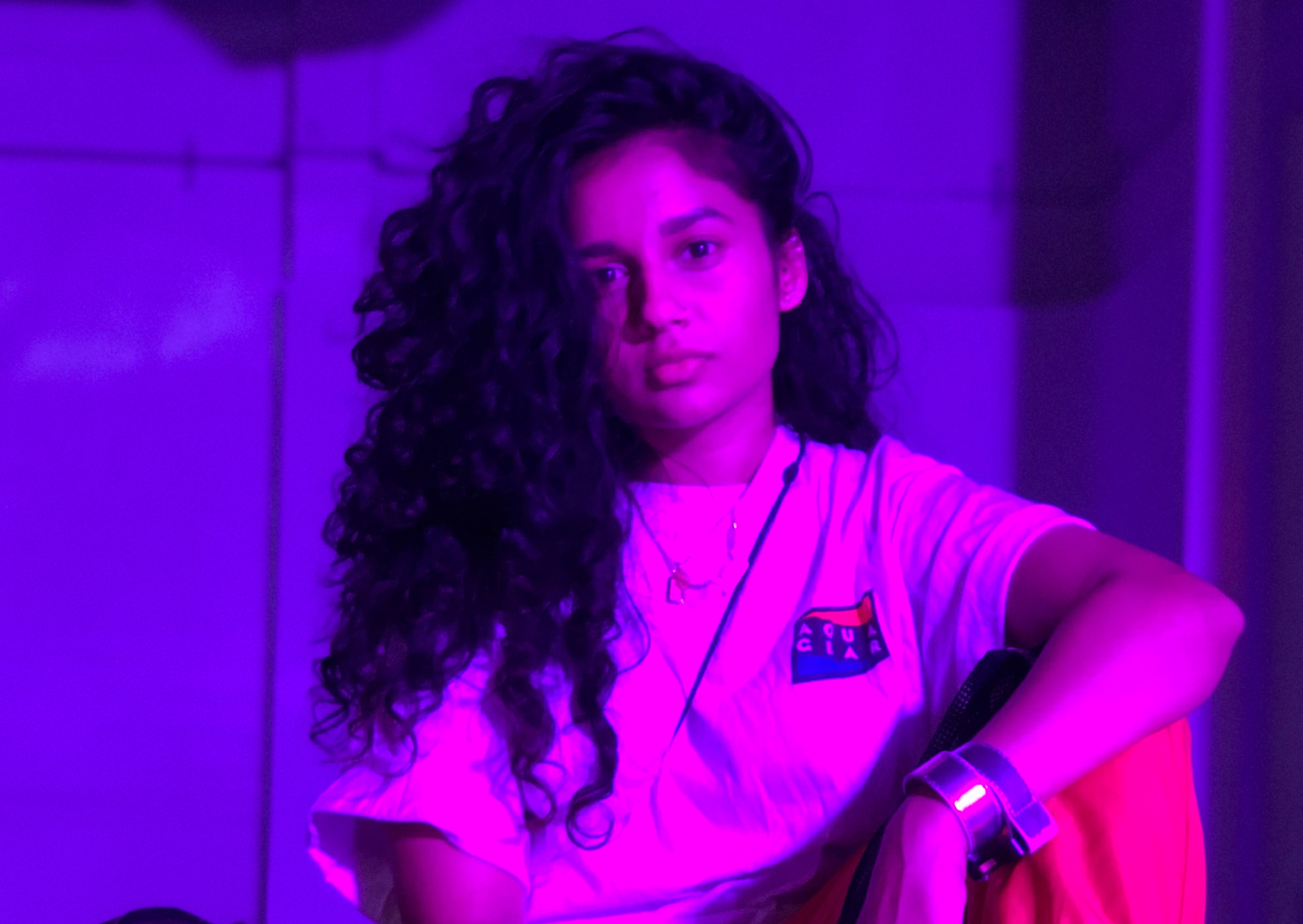
Art Director
Who: Virgilio Tzaj
Company: Atlantic Records
What is often misconstrued about the job?
I would say the cost—some people have champagne taste with a beer budget. Photographers, illustrators, and designers all have expenses and what they do costs money. A lot of [music] artists assume art is cheap or free, which is not the case.
What do you wish more people knew about your job?
It isn’t glamorous. The amount of work, time management, and stress that can go into some of these projects is something often overlooked. From pre-production, like planning a photo shoot, creating custom designs or even just trying to come up with ideas, to the fast paced turnaround in post (some singles or even album covers will have a single day to complete before deadline), there’s a lot more pressure than people think.
The best thing about the job?
Getting to work with artists who I look up to. Gucci Mane, Korn, and Nipsey Hussle are artists I grew up listening to and now I’m working directly with them on album artwork. It’s a fucking trip.
On top of that, it’s not only musicians, but other creatives like photographers, illustrators, and directors. I’ve had the opportunity to work with so many talented people from all over the world, many of whom I now call friends. When I get new projects, I can bring them on or vice versa. That’s when it doesn’t even feel like work.
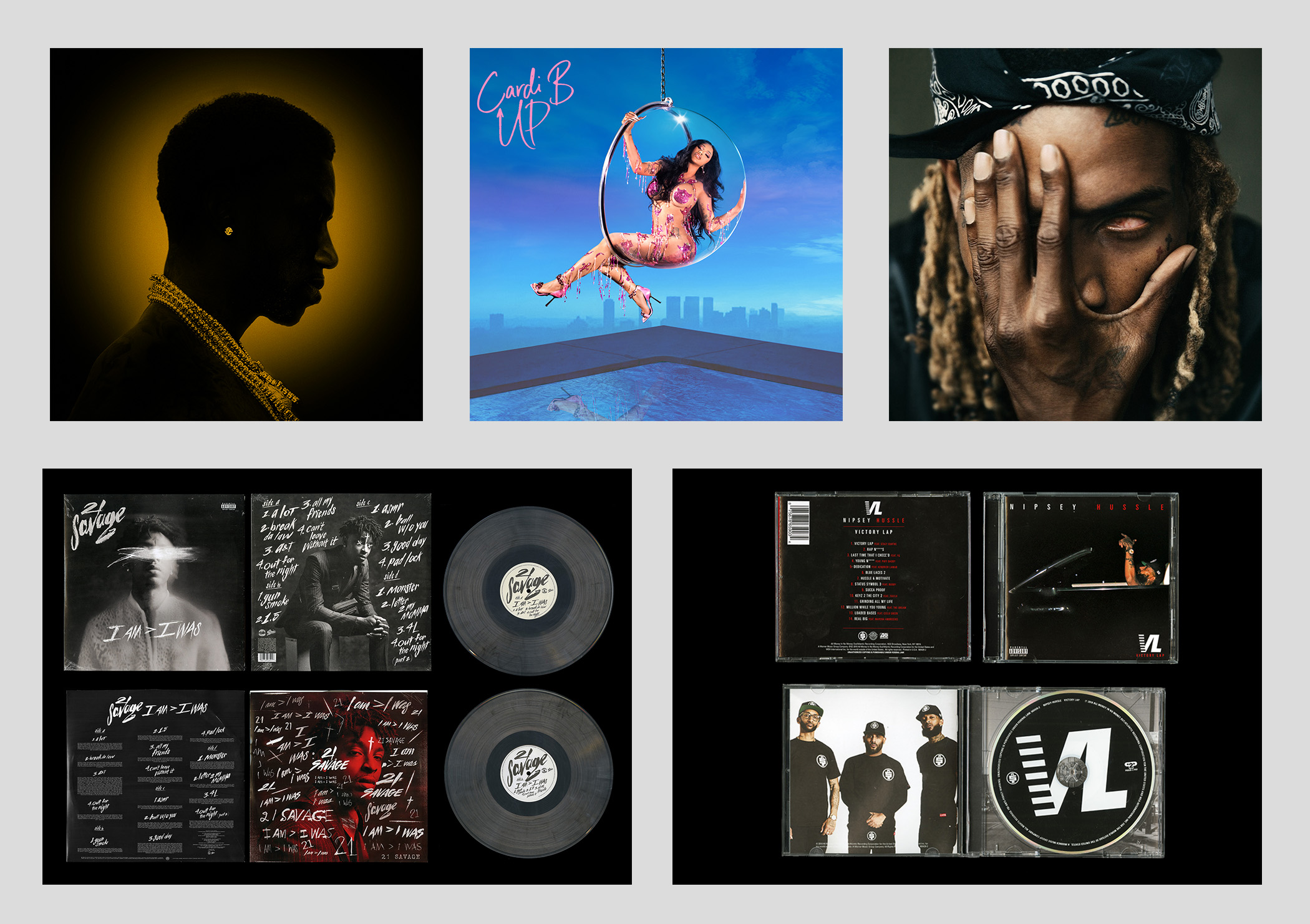
The most challenging thing about the job?
Staying creative and trying not to be too jaded. I’ve been working in the industry for 8+ years and it’s easy to kinda forget how special it is to be in this position. At the end of the day, I still love what I do, and get excited by it.
How to get the job?
Keep putting out quality work. I work on a lot of projects but post the ones that reflect the kind of work I want to make. Keep creating and put yourself in a position to win. Also, the music industry is so small, everyone knows each other, so be nice to people you work with. They’ll either be the ones putting you up for work or cautioning someone against working with you.
What song or album best describes your journey in the music industry?
“Grinding All My Life” by Nipsey Hussle.
Artist Manager
Who:Jake Markow
Company: $NOT’s manager, Founder/Operator of Markow Inc.
What is often misconstrued about the job?
The one thing that I get a lot is that people think that I work for the record label $NOT is signed to. They think I’m an employee, and I’m not.
What do you wish more people knew about the job?
Doing this is kind of a life-consuming job. It’s really hard to turn it off and it’s a good thing and a bad thing. One day you commit to doing what you think you want to do. Three years later, I eat, breathe, and sleep $NOT and everything in the universe that is going on with us right now.
Whether it be his career as a recording artist or the clothing company that we’re starting or the touring company that we have. We’re starting a label and there’s just so many different things that are going on. I think what that people don’t know is that this shit… it don’t stop.
The best thing about the job?
I love the job. I get to travel for work. I get to be very hands on with artist development. I really, really love $NOT. He’s a really great person. He’s the most talented artist that I’ve ever met. A very, very kind person. He’s an innovator and a leader. I love the team. I love what I do. The best part about the job is being able to be who I am and do what I do.
The most challenging thing about the job?
It’s harder than a lot of people think to look at the grand scheme of things and see where your client is at. To make moves and decisions and call the shots that are going to direct their career in the right way over really a long period of time. Especially when it comes to rap, a lot of artists have really short shelf lives.
You get a song, it starts to pop on TikTok and then a major label comes in and you take a shitload of money. They work that record into the fucking ground and you have one plaque on your wall and that’s it. Whether it’s the manager’s fault, the label’s fault, or the artist’s fault, you see it time and time again. There are kids that just explode out of nowhere. They go super viral, they’re everywhere, and then they’re nowhere.
From the managers point of view, it’s really important that you make decisions that of stop that from happening. Focus on really scaling out every aspect of your clients business proportionately. The one thing I would stress to aspiring managers, A&Rs, and college kids that are trying to get into this: you have to think long term.
How to get the job?
You just got to go out there and do it. I could give you a list of every decision I’ve made, career wise. From when I was a freshman in college playing in a hardcore band. I dropped out of school to be on the road and make $50 a night and sleep in Walmart parking lots, in a 15-passenger van. Then I was producing for local artists in Dallas and then flying around and being the day-to-day tour manager for next to no money. You can tell people about your story, but at the end of the day what is most important for being a manager is just fucking doing it.
What song or album best describes your journey in the music industry?
Beautiful Havoc by $NOT.
Publicist
Who:Julie Rene Tran
Company:ĐẶC BIỆT (Co-founder)
What is often misconstrued about the job?
It’s all about getting a freakin’ premiere, which is so annoying. The biggest thing people always associate with publicists is that they get premieres on top tier music outlets, but that isn’t really the case. A lot of times what we’re doing is telling the artist’s story and finding out what are the most fascinating parts about them. A lot of what we do is storytelling.
What do you wish more people knew about the job?
I think now, as publicists, our role is shape-shifting because of the amount of ways that an artist can tell their story. There are so many different avenues to share music, and artists are so accessible. A lot of times it’s not just securing a press look at a magazine, a print or a digital look, or a performance piece. Our role as a publicist is to wear so many different hats. I see myself as an integral part of marketing and as management. There’s always been this idea that what we do is just very specific, but often times we end up taking on all these other things because it overlaps so much now.
The best thing about the job?
The storytelling part. I work predominantly with Asian artists, both Asian-Americans and Asian artists overseas. I work a lot within hip-hop and rap, and with artists who are women. So for me, I still find that it’s very hard to push these artists in mainstream media. Getting their story and their voices heard. When I have a story that we know is going to resonate with people, especially people who look like me and people who look like the artist. When we finally land that story, that’s the most rewarding thing.
The most challenging thing about the job?
Whether you’re a publicist or a manager, when you’re a team member of an artist you always believe in the artist. You stand by them. You want to see them win. Being a publicist, you’re pitching these editors and you’re actually not the only one. You have managers, you have freelance writers all hitting up these editors. All fighting for very limited space on these publications. It’s very slim as we see the media space shrinking. Everyone is fighting for these spots.
A lot of times, my artist’s music is in a different language or they are rising artists who don’t have a viral hit. They may not have the numbers but their story is so incredible. Their music is good and sometimes that’s the most challenging part. You see their potential and where it’s going, but it takes time and it can be very discouraging when you don’t hear back or people love the music but your artist isn’t quite there yet.
How to get the job?
You would have to be a very strong writer. I would recommend first and foremost reading. I know it sounds so old school because nowadays, again, publicity is so content-driven. But fundamentally, I would recommend still being really familiar with the text side of things. Reading up the writers, that’s my favorite thing to do. Researching the writers who I feel would be a great fit in telling my client’s story.
As you’re starting out, do your research and be familiar with the writers and what they’re writing and the style of their writing. Then figure out what type of stories you’re interested in and want to tell. Figure out what type of publicist you want to be and then go from there. Really put yourself out there. Try to network however you can and be bold about your decisions.
What song or album best describes your journey in the music industry?
I would have to say The Trilogy by The Weeknd.
Music Supervisor
Who:Jen Malone
Company: Black and White (Co-founder)
What is often misconstrued about the job?
That I sit around and listen to music all day and make cool playlists.
What do you wish more people knew about the job?
That it is a business and extremely intense. It is so much more than finding a cool song or making a playlist. You are constantly up against deadlines—whether it is clearing a lyric spoken in dialogue for a scene shooting tomorrow, or creating a pre-record for a 100-person marching band and 70-person choir, or clearing a song that the director has to have with 20 writers.
You are navigating things like public domain, estates, parody law, samples, on-camera performances, budgets, reports, script breakdowns, audio assets, unions, liaising between studios, networks, producers, execs, and of course all clearance paperwork for every aspect of music that is in a show.
The best thing about the job?
Being a part of a show or film where the music connects so much with the audience and being able to help indie artists’ careers by giving them placement in a high profile show.
The most challenging thing about the job?
The TV production schedule.
How to get the job?
Intern and learn the business.
What song or album best describes your journey in the music industry?
Since the Nine Inch Nails are the reason I am in this business, I have to say Pretty Hate Machine.
“[Being a music supervisor] is so much more than finding a cool song or making a playlist. You are constantly up against deadlines—whether it is clearing a lyric spoken in dialogue for a scene shooting tomorrow, or creating a pre-record for a 100-person marching band and 70-person choir.” – Jen Malone
Digital Marketing
Who:Ahmed Diabate
Company:Integral Studio (Head of Operations)
What is often misconstrued about the job?
That there’s a one-size-fits-all solution for artists. For some artists it makes sense to have a heavy TikTok presence. For others, going live on IG is super effective, but it really just depends on the specific artist and the behavior of their fans.
What do you wish more people knew about the job?
What I wish people knew more about digital marketing is it’s about hitting KPIs, which are key performance indicators. It’s easy to want to go viral or be lit on TikTok, which is what a lot of people approach us with. But for most artists, digital marketing is about steady growth of new fans and being consistent and unique in the way that you’re engaging with them.
The best thing about the job?
It’s the data, because we look at a ton of different metrics. When we see results beating out our expectations our internal group chats start popping off and going crazy.
The most challenging thing about the job?
It’s probably two-fold. The first part is the educational aspect. We’re often teaching labels and teams about why they shouldn’t care about vanity metrics and getting them hip to metrics that affect the bottom line or new fan retention.
The second portion is when we have to let teams know that the song that they chose and put all their effort in might not be the best possible single. A lot of times people are making single determinations based on small sample sizes. Sometimes it works, but sometimes people choose track 3 when they should have chosen track 8, and the data shows it.
How to get the job?
I would say the first step is understanding where artists and fans are interacting with each other. Obviously there are platforms like Instagram and Twitter, but then it goes even more nuanced into things like TikTok and Twitch and Youtube. The first step is really understanding the nuances of fan behaviors on each of those platforms. The next step would be to learn about those ad managers because on all those platforms you can run paid advertising. An understanding of those ad managers is really key.
Three would probably be an understanding of influencers across different platforms and the best ways to communicate with them and grow them into your network. And the last thing: develop an eye and ear for good records and content. At the end of the day you can put all the bells and whistles on anything, but great music is always going to shine. Great content is always going to shine. What we try to do is amplify that.
What song or album best describes your journey in the music industry?
I would probably say Birds in the Trap Sing McKnight by Travis Scott.
“We’re often teaching labels and teams about why they shouldn’t care about vanity metrics and getting them hip to metrics that affect the bottom line or new fan retention.” – Ahmed Diabate
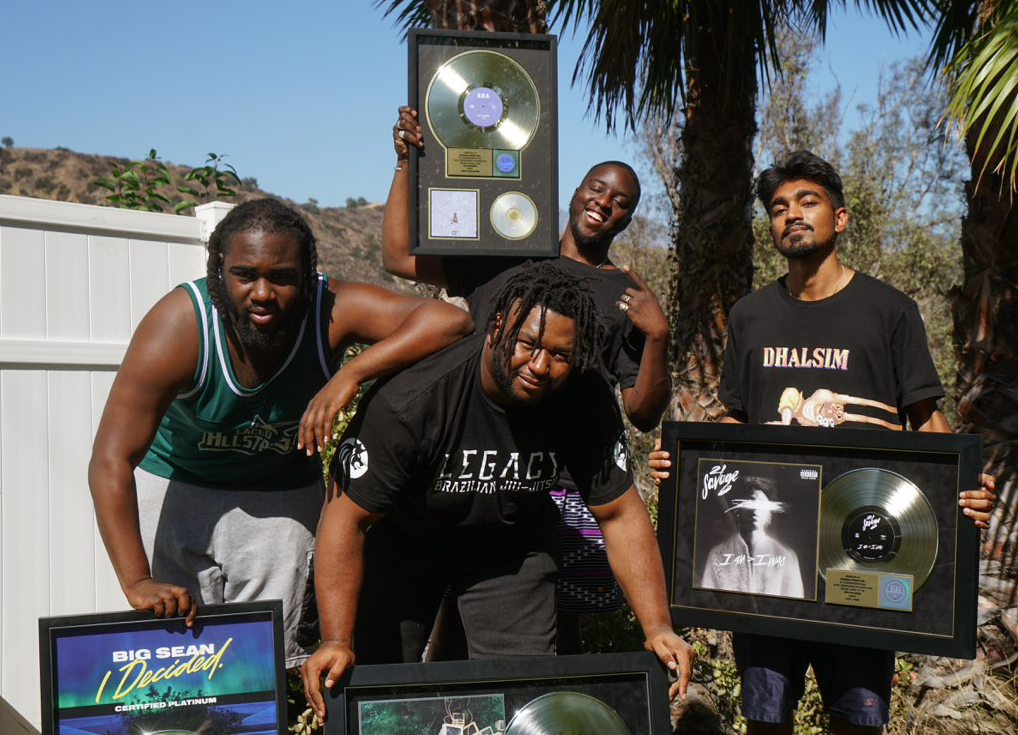
Concert Promoter
Who: Alex Damashek
Company: Move Forward Music (Founder/Executive Director)
What is often misconstrued about the job?
There’s very little room for error. There are few positions in any field—but I would say definitely in the music industry—where you’re as likely to take a loss on a regular basis in the normal course of business. Concert promoters lose money all the time. I’ve been doing it for a while so I’ve sort of figured out the formulas and some of the tricks to the game so I luckily don’t take that many losses anymore.
But anybody who’s been promoting events for a long time has lost their share at one point or another. I don’t think people realize that it’s a game of bets and wins and losses. There are times when you win big. There are times when it might be a great show and people are patting you on the back but you’re the only one that knows the P&L side and your looking at the settlement sheet like, “Ohhh man, this a horrible night.”
What’s misconstrued is that people think that the promoter is the one that’s getting over on everybody or sort of doing back room shady deals. A lot of times it’s the promoter that’s putting themselves on the line, putting their own money up to make the shows happen and sometimes taking a loss.
What do you wish more people knew about the job?
I wish that people had a sense of how much goes into a concert from all sides, not just from the promoter side. From my side, as a promoter, your talking about renting the venue, paying the artist, and making sure all the equipment is there. And making sure there’s adequate security in place, so everyone is safe. There are a lot of moving parts and different expenses that go into it.
Then from the artist side, mobilizing a whole team to go on the road, securing equipment and bringing your back line. There’s a lot that goes into the production of one show. A lot of expenses. A lot of energy and work. If people had any idea how many different moving pieces and players and different parts went into creating the artist being in the venue at that time to perform that show, I think that they would be willing to pay a lot more then they are currently.
The most challenging thing about the job?
The hardest part for me, especially because I work specifically identifying emerging artists and always trying to catch artists for their first New York show, is keeping track of all the music and putting all the pieces together from the outset.
When we’re making the offer and trying to gauge what an artist is going to sell, there are so many different variables that go into it. It goes without saying how fast music is moving these days. Just keeping up with all the trends and really staying close to everything and being knowledgeable to make the right bets on the right artist.
The best thing about the job?
That’s an easy one—that’s been the same since day one. The best thing about the job is doing all those things I talked about. Starting from finding the artist, making the bet, putting in the offer and getting the confirm. Mobilizing everything. Doing all that and then the end product is being in a sold out room. Watching fans lose their mind when an artist hits the stage or performs a certain song or hits a note. Being able to suck up that emotional energy in the room and watching fans reactions. Watching different people from different walks of life react to the same song at the same time is always a great feeling to me.
How to get the job?
First things first you gotta show up, start going to shows. I think that’s important. Really understanding what the experience is like from a fan perspective. I would imagine a lot of people who want to be in the live events business have already gone to a bunch of shows, but there are a lot of different opportunities, because like I said there are so many different parts to what goes into creating a show.
I’d say find the venues that are doing shows that you connect with and reach out and see what kind of help they need. Going to venues is always a great start, that’s where I started. My first job out of college was at SOB’s. I walked in and put my resume in. From there, once you can get an internship or start working at a venue, so many different parts of the music industry come through those walls. You can make tons of connections and network. You get a lot of opportunities to help different people, from tour managers to booking agents and so on and so forth. So you gotta start there.
The name of the game for me has always been to do good work for a lot of people and eventually it comes around. It’s always hard to get that first foot in the door but I think you have to just make yourself available. Not to oversimplify it, but I think that’s where it starts. Putting yourself in the position where you can meet somebody who’s going to introduce you to the next person. It’s never one big break, it’s one step at a time.
What song or album best describes your journey in the music industry?
“We Gonna Make It” by Jadakiss and Styles P.
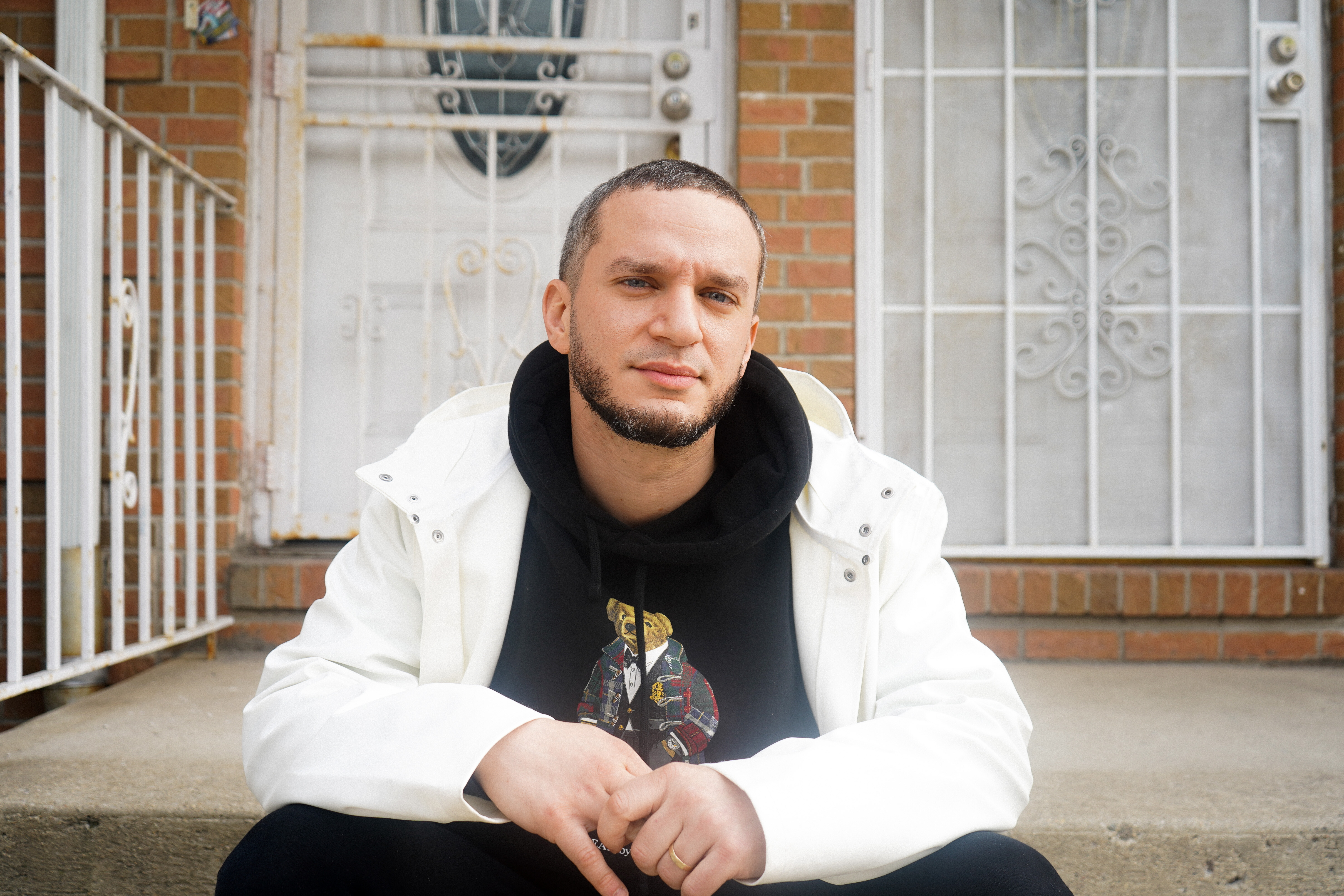
Playlist Curator
Name:Joe "Vango" Jackson
Company:Audiomack
What is often misconstrued about the job?
Maybe that it’s just listening to music. That the only part is listening to music and slapping a playlist together. A lot more that goes into it other than just making sure the playlist flows cohesively. There’s a lot to do with branding and aesthetics. There’s a lot do with label partners, distribution partners, a lot behind the scenes.
What do you wish more people knew about the job?
I can’t speak for all companies and I don’t want this to be the hot spicy take, but our playlists are not all label acts, it’s not all label dominated music. It’s not like these labels are presenting these artists to us on a silver platter. UMG doesn’t own a percentage of the playlist, SONY doesn’t own a percentage of the playlist—that’s just not how it works.
The best thing about the job?
The best part about my job is the creative control, the freedom. I get to create whatever I want to. I also go off of analytics, stats, and what people are searching for, but I really do get to curate whatever I want to.
The most challenging thing about the job?
Managing all of the relationships. As you grow, years and years—and mind you I’m only four years in so I can only imagine what it’s like for the older industry vets—it’s just managing all of the emails, managing all of the DMs, managing all of the social media attention because we’re not invisible people on social media. You can find us so you can actually reach out and submit to us, so managing all of that and also trying to balance the work-life thing can be a challenge.
How to get the job?
The biggest thing I would say is build a brand. It doesn’t need to be a big brand, it doesn’t need have the largest following, but it needs to have a really solid aesthetic. It has a look, the names, a theme. Basically, I know what I’m getting when I come here and it’s very well put together.
What song or album best describes your journey in the music industry?
The album that would best describe my journey in the music industry would have to be Vol.2… Hard Knock Life by Jay-Z.
